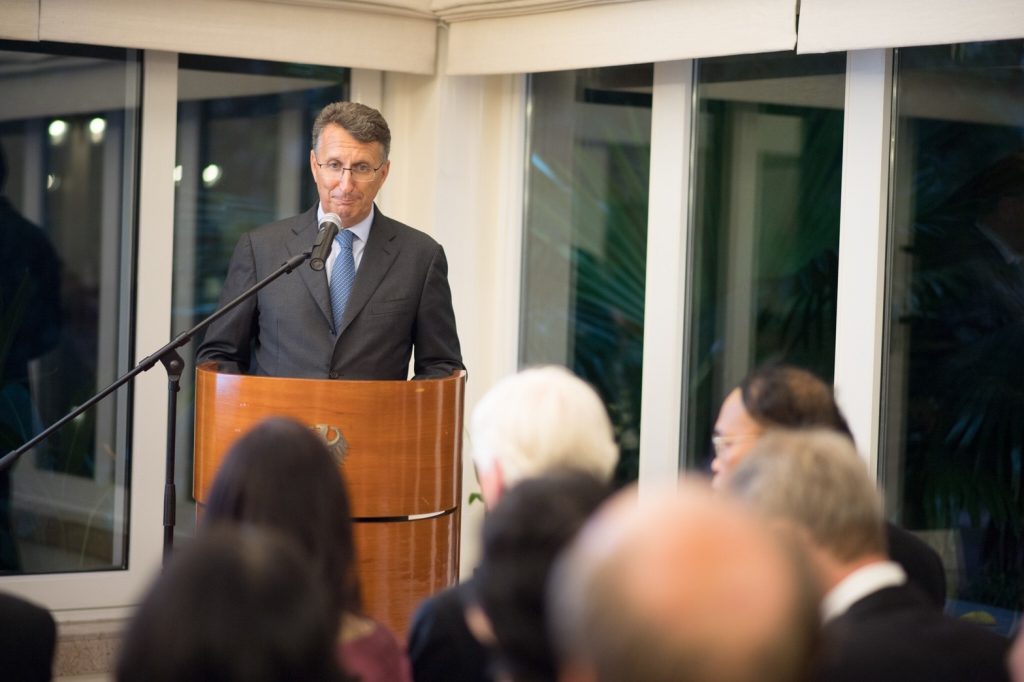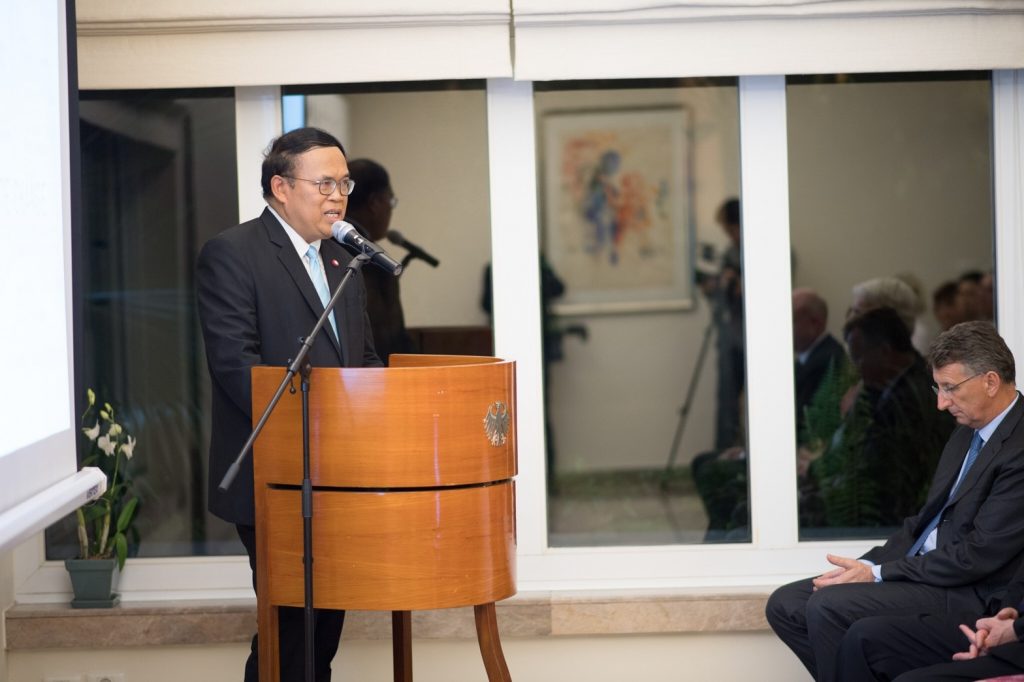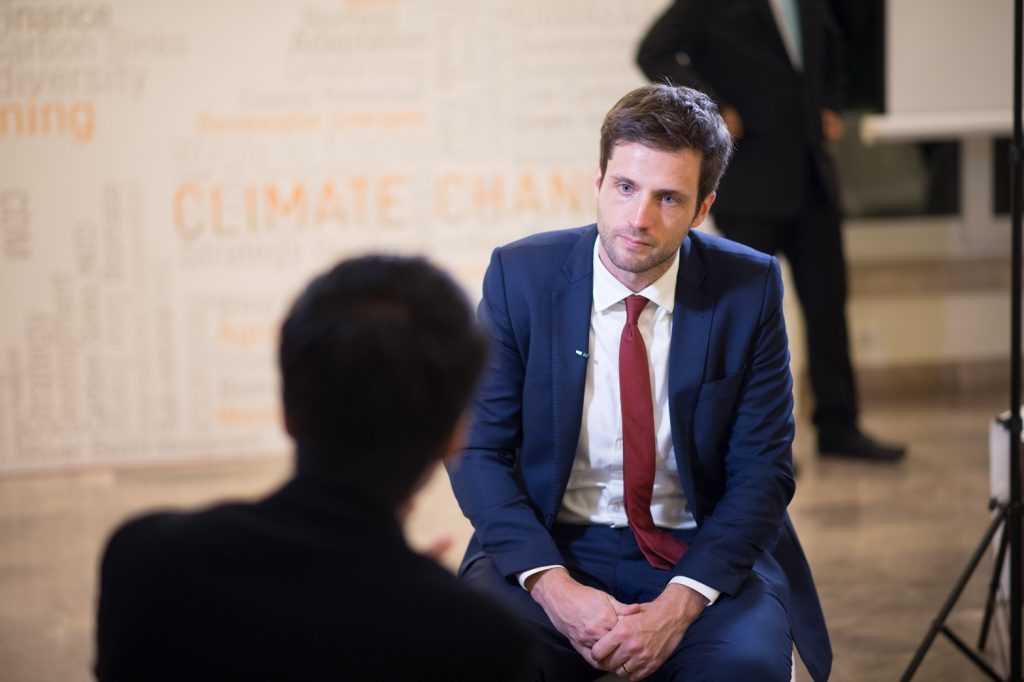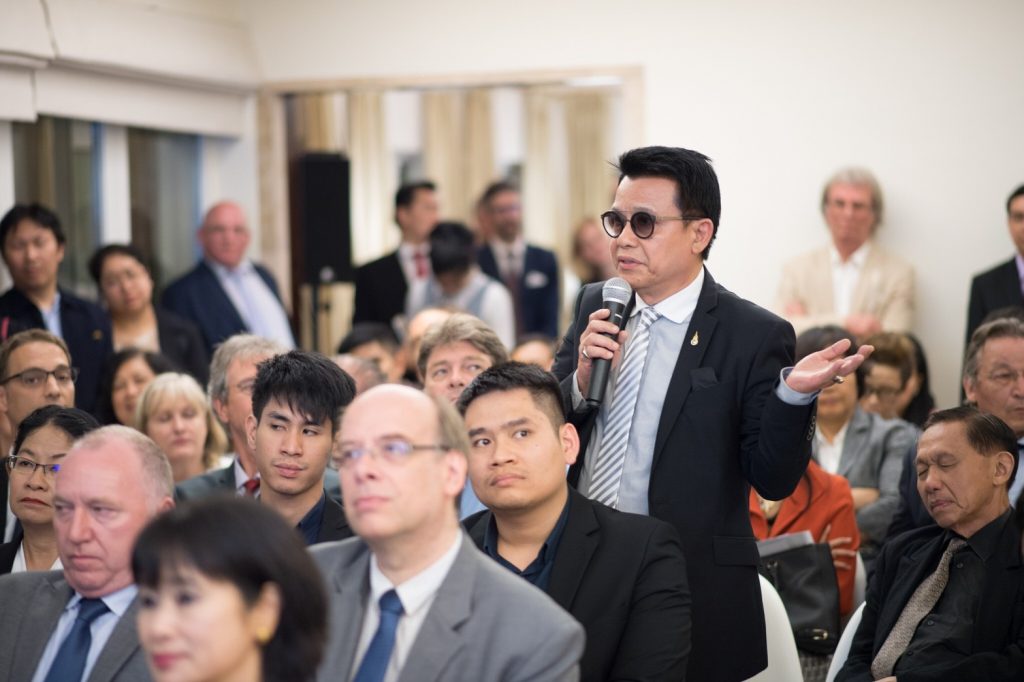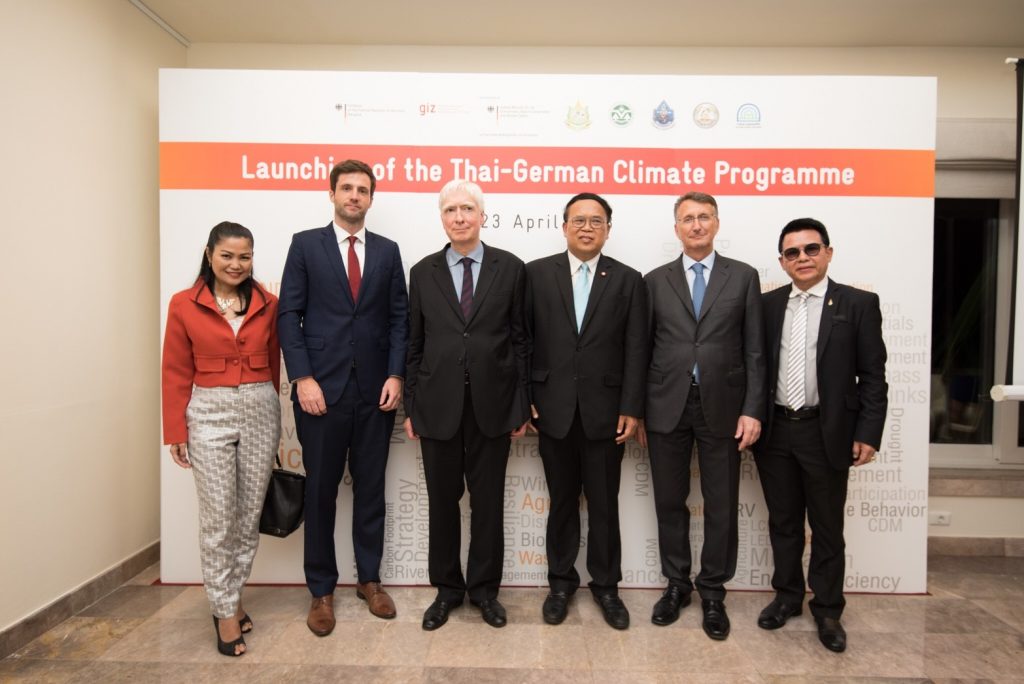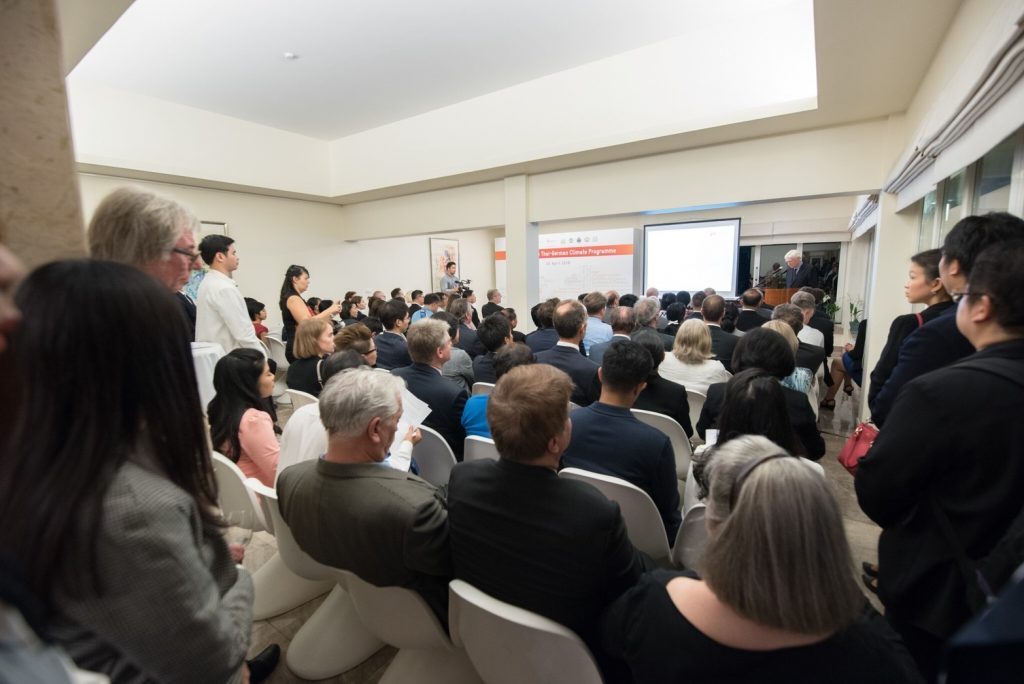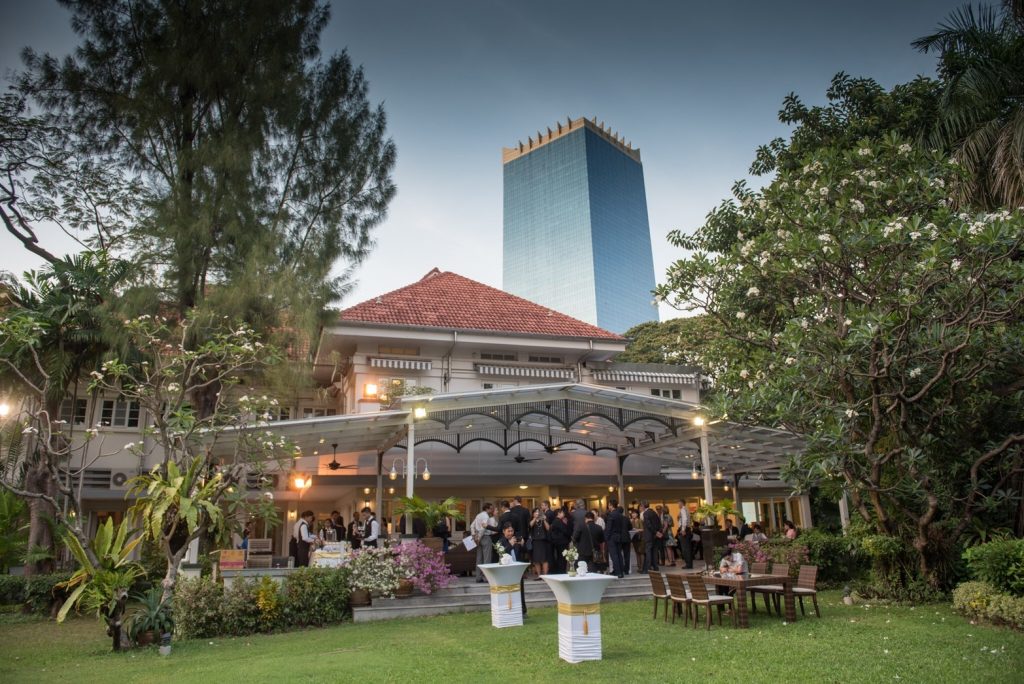The Government of the Federal Republic of Germany together with the Government of Thailand celebrate the launch of “Thai-German Climate Programme (TGCP)”. The programme is financed by the International Climate Initiative (IKI) of the German Ministry for the Environment, Nature Conservation and Nuclear Safety (BMU) and is implemented by the Deutsche Gesellschaft für internationale Zusammenarbeit (GIZ) GmbH. The GIZ team of international and national experts provides cross-sectoral support and works closely with its Thai governmental partners.
In his opening remarks at the TGCP launch, the Ambassador of the Federal Republic of Germany, H.E. Mr. Peter Prügel, emphasised the significant public interest in this programme, saying: “The technical and financial cooperation of our two countries Thailand and Germany dates back to over 60 years ago – and has been very successful in almost uncountable number of projects. Today – the strong push for an accelerated development of Thailand’s economy and the entailed high demand for energy, keeps up the pressure on the Thai Government to support a framework that aims at more sustainable sourcing, more energy efficiency and reducing CO2 emissions.” The Ambassador expressed Germany´s commitment to working with partners in Thailand on these challenges and to share experiences from Germany.
Mr. Stephan Contius, Commissioner for the 2030 Agenda for Sustainable Development of the German Ministry for the Environment, Nature Conservation and Nuclear Safety (BMU), added that Thailand is an important partner country of the IKI. “Since 2009, the German Federal Environment Ministry has financed more than 13 bilateral projects with a total value of nearly EUR 50 million (about THB 1.9 billion) in Thailand focusing on mitigating CO2 emissions and helping Thailand to adapt to climate change as well as to protect forest areas and biodiversity. The new IKI programme we are launching today will contribute to Thailand´s efforts on climate change. Business-as-usual is not an option anymore: Both governments are very much interested in accelerating the implementation of the Paris Agreement and of the 2030 Agenda for Sustainable Development.”
The Permanent Secretary of the Thai Ministry of Natural Resources and Environment (MoNRE), Dr. Wijarn Simachaya, thanked BMU and GIZ for their continuous support over the past years and stressed Thailand‘s commitment to include the results of international climate negotiations into national policies.
“Thailand has made considerable progress in transforming the results of international climate negotiations into national policies. With the submission of our first Nationally Determined Contribution (NDC) in which we defined our climate goals and priority sectors, Thailand has set itself ambitious CO2-mitigation targets and adaptation goals. We have formulated an NDC Mitigation Roadmap outlining sectoral measures to achieve our targets. Furthermore, by the end of 2018, Thailand will launch our National Adaptation Plan for adaptation goals. Thailand is thus on track in setting a path domestically to contribute to global efforts to fight climate change. The Thai-German cooperation, particularly the Thai-German Climate Programme, has greatly contributed to our efforts, and I am happy that we can extend our cooperation and jointly implement this new climate programme.” Dr. Wijarn added.
Presenting the objectives and the approach of the programme, Mr. Tim Mahler, Country Director of GIZ Thailand and Malaysia, stated: “The new Thai-German Climate Programme uses GIZ´s close and long-standing relationship with our Thai partners in the field of climate change to implement a large-scale cross-sectoral programme. GIZ will further seek close cooperation with other projects in Thailand on climate change to ensure that the international support is implemented as effectively as possible.”
BMU’s IKI is dedicating EUR 17.9 million (about THB 690 million) to the Thai Government for the 4-year implementation (2018-2021). This will see governmental partners, the private sector and civil society cooperate on climate-friendly development approaches in the energy, waste, water and agriculture sector as well as on general aspects of climate change. The main implementing partners are the Office of Natural Resources and Environmental Policy and Planning, the Ministry of Energy, the Pollution Control Department, the Department of Water Resources, and the Rice Department.























